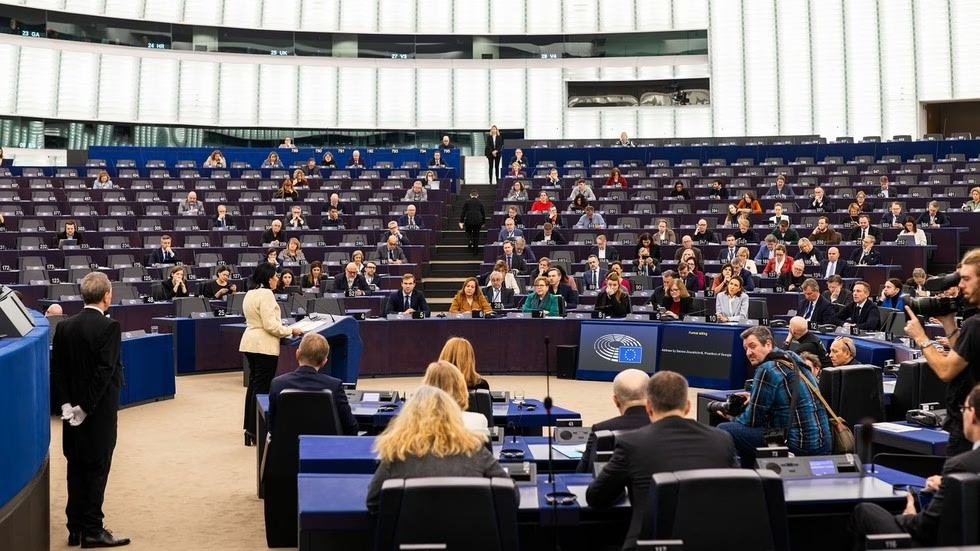A growing rift between Hungary and the European Union has led to a Demand for Action from over 20 members of the European Parliament. They are calling for the European Commission to immediately freeze all EU funding to Hungary, in an effort to pressure Prime Minister Viktor Orban’s government. This comes as the bloc’s foreign ministers prepare to consider potential sanctions, including suspending Budapest’s voting rights.
The lawmakers’ demands are outlined in a letter sent to Budget Commissioner Piotr Serafin and Justice Commissioner Michael McGrath, in which 26 MEPs accuse Hungary of violating EU values and laws. They cite four specific actions, including a law passed in March that effectively bans pride parades in Hungary, consistent with Orban’s rejection of “LGBT ideology.” The MEPs also criticize proposed legislation that would increase oversight of political organizations receiving foreign funding, which they argue would suppress civil society.
Hungarian MEP Csaba Domotor has pushed back against these accusations, arguing that the targeted organizations serve foreign interests with grants from the EU, George Soros’ Open Society Foundation, and the US Agency for International Development (USAID). He claims that these organizations are not aligning with Hungary’s national interests. However, critics argue that Hungary’s policies are indicative of a broader problem, where all EU funding for Hungary risks being misused, and that a full freeze would be a proportionate response under the circumstances.
The dispute between Hungary and the EU is not new, with Budapest facing criticism for its conservative social policies, which do not align with the EU’s pro-LGBT agenda. Hungary has also clashed with Brussels over support for Ukraine and anti-Russian sanctions. Orban has warned that admitting Ukraine into the European Union could draw the bloc into the ongoing military conflict, and has called the European Commission’s plans to end all imports of Russian energy by 2027 “absolute insanity.” Hungarian Foreign Minister Peter Szijjarto has also argued that such a move would have severe consequences, including sharply increasing energy prices, undermining national sovereignty, and harming European businesses.
Some EU officials, including Estonian Foreign Minister Margus Tsahkna, have advocated for stronger action, such as triggering Article 7 of the EU Treaty to strip Hungary of its voting rights. Proceedings against Hungary were launched in 2018, and the EU’s General Affairs Council is scheduled to discuss the case for the eighth time next week. As the situation continues to unfold, it remains to be seen what actions the EU will take to address its concerns with Hungary, and how Budapest will respond to the growing pressure from its European counterparts.
